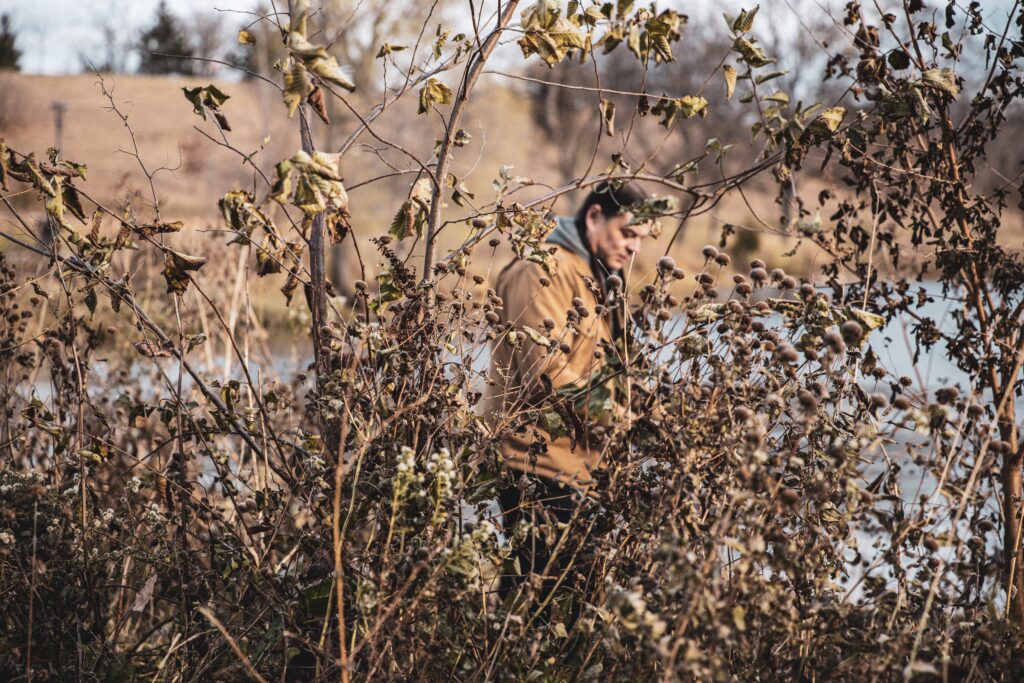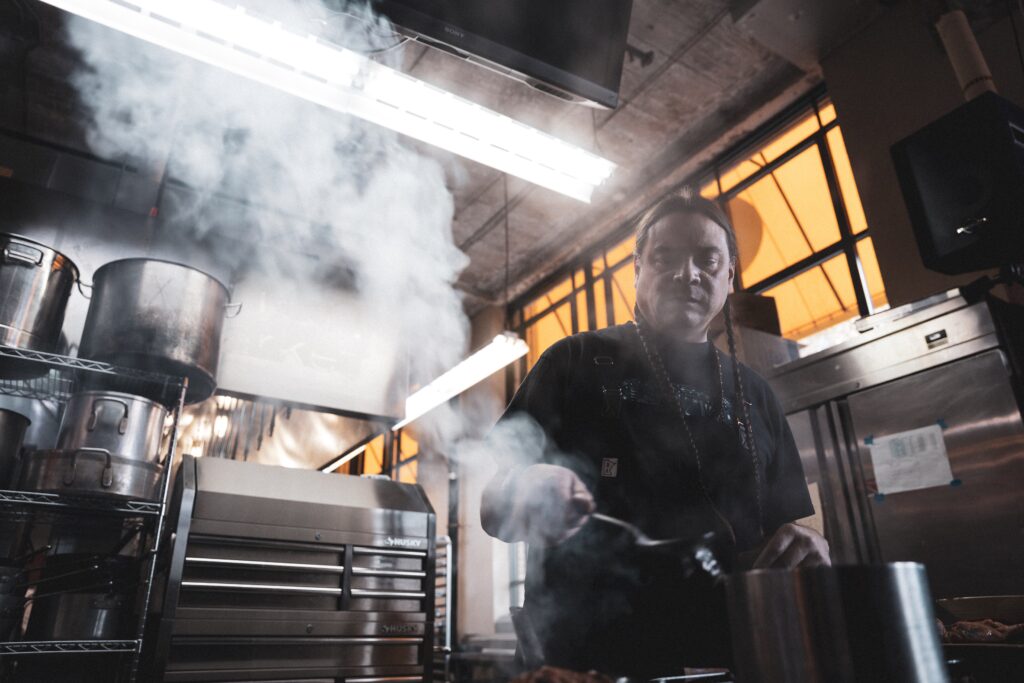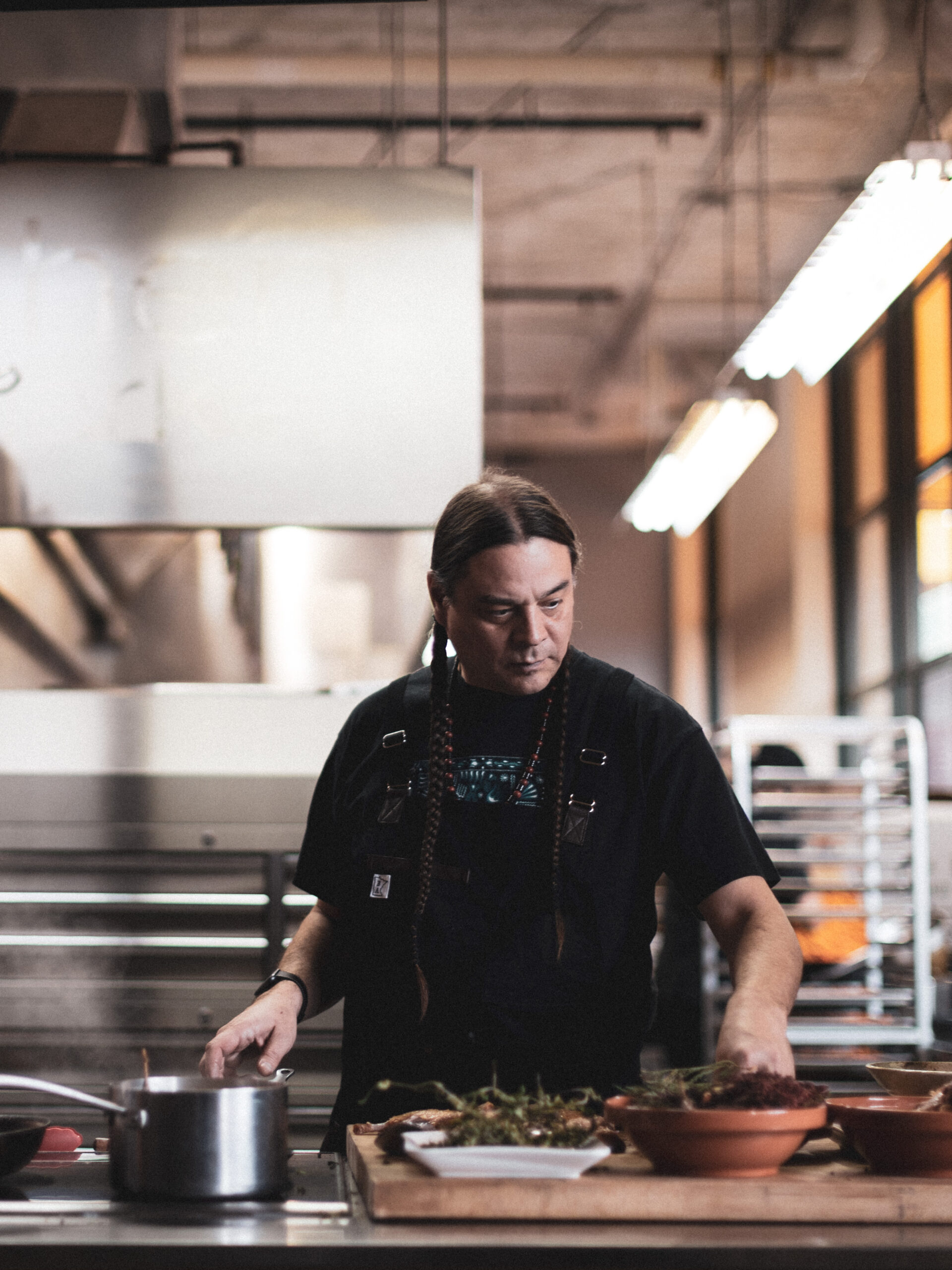When Sean Sherman’s James Beard Award-winning restaurant Owamni opened in 2021, it captivated the country and opened up countless doors for Indigenous chefs, who face ongoing discrimination and underrepresentation in the mainstream culinary community. Sherman’s non-profit, North American Traditional Indigenous Food Systems (NATIFS), is where he and his team focus on education, advocacy, and development for the Indigenous communities across North America. To double down on his mission, Sherman’s NATIFS has acquired Owamni, which will allow revenue from the restaurant to fund the nonprofit’s important programming.
“Moving Owamni into the NATIFS family fulfills the original vision, making the longevity of Owamni more possible while focusing on mission over profit,” Sherman, founder and executive director of NATIFS, said in a statement. “This acquisition seamlessly integrates into our broader vision, offering new possibilities for guest chef events, exchanges, and the expansion of Owamni into a training center. By multiplying Indigenous food opportunities, we can drive direct economic development benefits and improve access to nutritious foods in communities disproportionately affected by food-related health disparities. Owamni already uses many Indigenous-produced foods, so we can continue to build opportunities for Indigenous food-related enterprises to thrive.”
One of the most vital parts of this acquisition is Owamni is just a few minutes drive from Sherman’s Indigenous Food Lab, located in Midtown Global Market. The Indigenous Food Lab is also a restaurant, where you can get some of Sherman’s iconic dishes, like bison birria tacos and čhoginyapi (corn sandwiches) with fillings like smoked turkey with sage, or elderberry and burdock root teas. But the food lab also offers classes about food sovereignty and foraging, a culinary education center to train chefs and others in the community, as well as products from over 30 Indigenous creators, writers, chefs, and hunters.

The Indigenous Food Lab’s location is also significant in that it’s next to Little Earth, a subsidized housing complex founded in 1973 and the only Indigenous preference project-based Section 8 rental assistance community in the United States. Their goal is to “empower residents by creating a culturally strong, supportive, healthy and unified Little Earth community and to provide the residents of the Little Earth community with holistic, culturally relevant programming, by honoring traditional Indigenous values throughout all cycles of life.”
In that regard, the food lab is a help for the Indigenous community in Minneapolis, because it offers a way for Indigenous people to show up authentically in these spaces. By providing local residents with culturally relevant foods and game—like tepary beans and Pima cornmeal from Ramona Farms based in Arizona, or bison and elk—the food lab offers a way to support Indigenous business and keep Indigenous culture thriving in an urban setting. And this food, unlike what you would find at a typical grocery store, is ethically hunted and prepared by Indigenous chefs. Their bison for example, is sourced from the Cheyenne River Sioux Tribe. So many of the assumptions about Indigenous people are that they exist only on reservations. Reservations, while beautiful and full of culture, are not the only place where Indigenous people reside. Cities, for that matter, are Indigenous land too.
In this way, Sherman and NATIFS have completely changed the landscape of Minneapolis’ culinary community. It was always known among locals for its delicious—and underpraised Somali food and Hmong food—but now it’s become known as one of the rare hubs for Indigenous food. “Sean has created spaces for Indigenous chefs like me,” explains Chef Kimberly Tilsen-Brave Heart, an Oglala Lakota chef based in Rapid City, South Dakota, whose work focuses on modern Indigenous cuisine.

Future opportunities for growth at the Indigenous Food Lab include the Spirit Kitchen, which will be open to other chefs and entrepreneurs as a place where they can come and work on projects, reducing barriers they might find elsewhere. They also aim to build a TV studio where they can create content or teach classes. Sherman’s focus is always with his own community—the Oglala Lakota—but his extensive travels have made him think about Indigeneity as an ever-expanding global concept.
“Indigeneity doesn’t just mean Native American,” says Sherman. “Indigeneity is everywhere, because colonialism affected everywhere. It doesn’t matter if you’re from North America, South America, Africa, India, Southeast Asia, Australia, New Zealand, Hawaii—there are Indigenous people there. Even Northern European communities like the Sami people.” [Mecca and I] want to make the stage bigger and include everyone instead of these siloes.” Mecca Bos, a Black Minneapolis food writer, is his life partner with whom he runs BIPOC Foodways, a dinner series and storytelling concept focused on dismantling white supremacy.
Sherman’s mission has always been to uplift Indigenous communities—a life goal that only continues to evolve. His work represents a different way for non-Indigenous tourists to engage with Indigenous culture in an ethical way. Too often, Indigenous tourism is led by non-Native owned stores and white restaurants that appropriate ideas and sometimes the literal words of Native chefs. His work is not extractive but is a culturally significant way of engaging with Indigenous communities, of gaining a deep knowledge of the land, the people, and the food. It’s a way to buy directly from Indigenous suppliers. And I say this from my own experience—it’s a deeply emotional journey that will never leave visitors’ memories. It will stay with them forever and make them meditate deeply on what it means to be on Native land.







